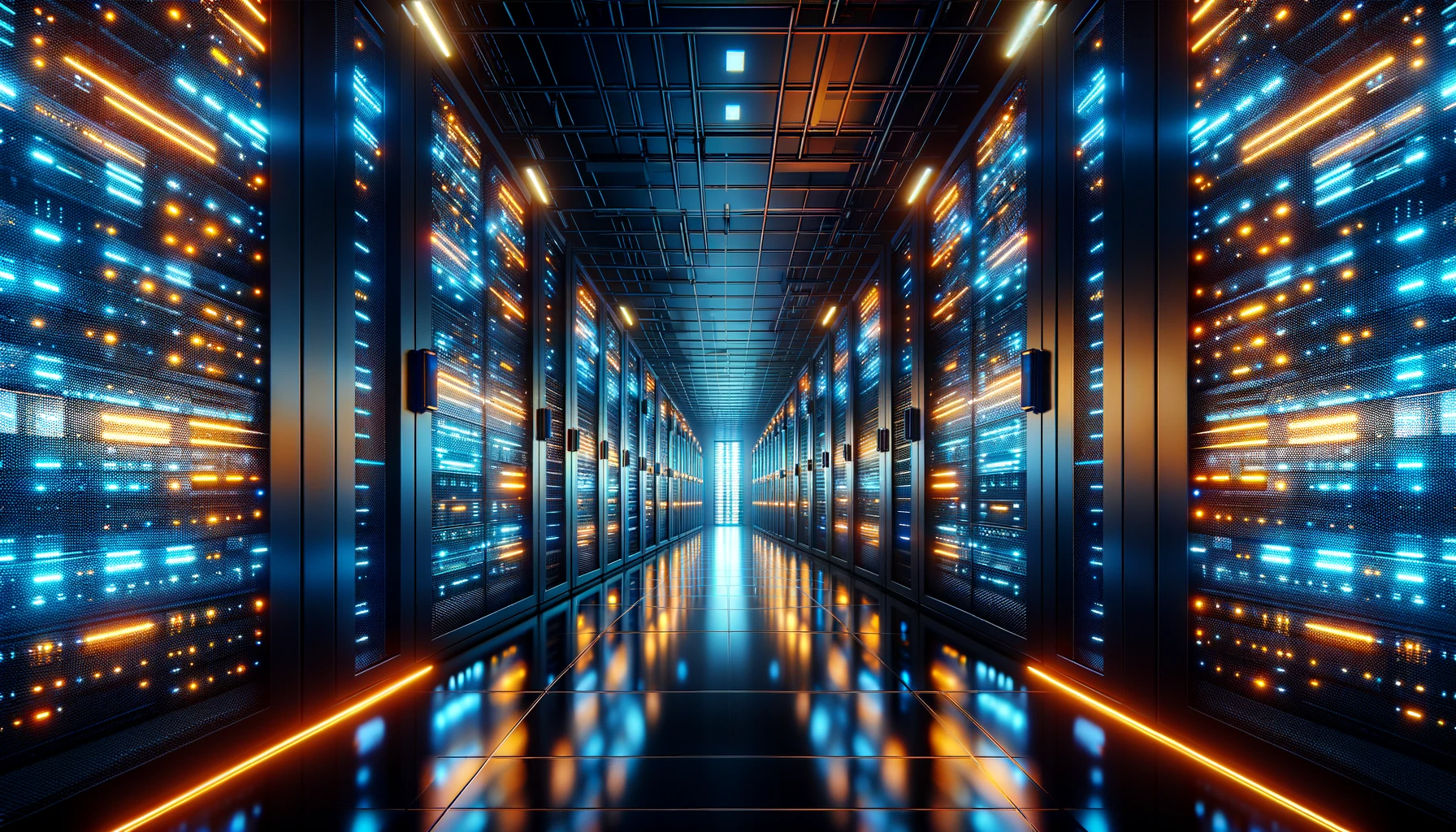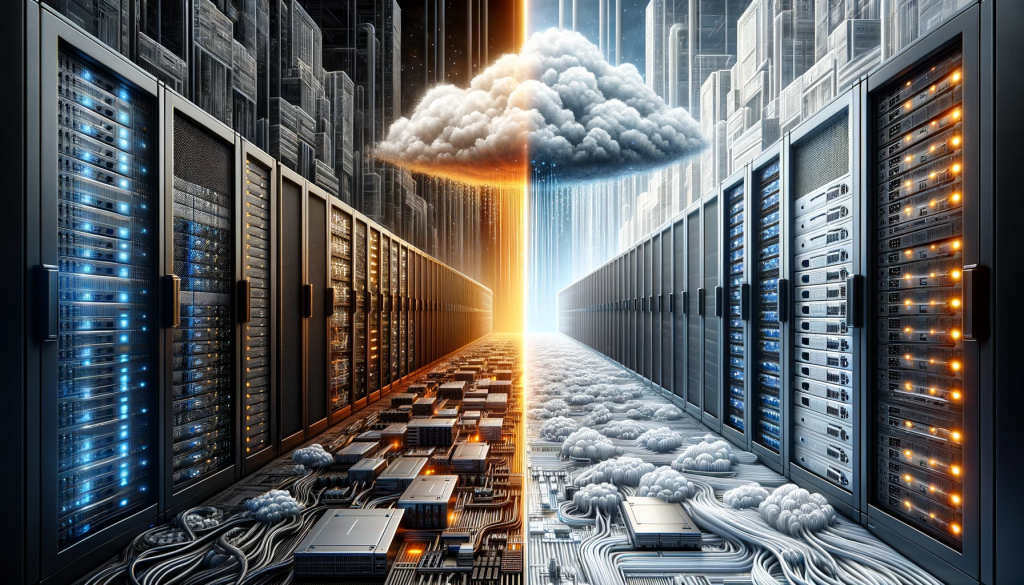
Table of Contents
Data storage infrastructure plays a crucial role in supporting business operations and the efficient delivery of online services. The choice between using local or global data centers makes a significant difference in a company's technology strategy. We will tell you the features to consider when looking between choosing a local or global data center or a cloud server.
Local Data Centers
Local data centers are data storage infrastructures designed to meet the specific needs of a given geographic region. They are strategically located in close proximity to the communities they serve, offering low latency and faster connection for local users. These data centers are often tailored to the specific regulatory and privacy requirements of a region, providing an additional level of security and compliance. The distinguishing feature of local data centers lies in their ability to offer specialized and customized services that address the unique demands of their users in a specific geographic environment.
Characteristics Of Local Data Centers
The characteristics of local data centers can vary significantly depending on a number of factors, such as geographic location, service provider and specific customer requirements. Flexibility and adaptability are inherent features of the data center industry, as they must adjust to the changing needs of the communities and businesses they serve.
For example, regulatory regulations may differ between countries or regions, leading to variations in compliance and security practices. In addition, service specialization may vary according to local demand, adapting to the particular characteristics of each market. Below is a list of broad aspects of local data centers.
- Geographic Proximity: They provide a physical closeness that transcends digital connectivity.
- Low Latency: It reduces loading times and brings digital experiences closer to immediacy.
- Regulatory Adaptability: They comply with local and global regulations.
- Segmented Specialization: They provide customized services tailored to the unique demands of the local market.
- Reinforced Physical Security: Implement advanced physical security measures to protect infrastructure and sensitive community data.
- Regional Collaboration: They foster collaboration and local economic development by becoming an active part of the community.
Global Data Centers
These data centers, with their expansive reach, offer a data storage infrastructure designed to address challenges on a global scale. While certain attributes, such as redundancy and scalability, are common, it is important to note that specific features may vary by data center location and service provider. Here we provide an overview of some of the key characteristics that typically define global data centers.
Characteristics Of Global Data Centers
- Global reach: Strategically located in different regions of the world to provide services to a global audience.
- Redundancy and Resilience: Designed with redundant systems to ensure continuous availability and resilience to failures.
- Unlimited scalability: Ability to dynamically expand and adapt as storage and processing requirements increase.
- International Standards: They comply with international regulations and standards to ensure global legal compliance and data security.
- Adaptability to Cultural Diversity: Flexibility to adjust to the cultural norms and specific requirements of different markets and regions.
- Energy Efficiency: They incorporate sustainable practices and efficient technologies to minimize environmental impact on a global scale.
- Network Interconnectivity: They facilitate seamless interconnection between multiple locations, optimizing data transfer worldwide.
What is a Server?
A server is a system that provides services, resources or functionality to other devices or programs, known as clients. The main function of a server is to manage and facilitate access to shared resources, such as files, applications, services, or even computing power.
A server can be both hardware and software. In the case of hardware, it is a physical machine dedicated to running services and handling requests. In the case of software, it refers to programs and services that run on a physical server and provide specific functionalities.
Cloud Servers
The cloud servers o Cloud servers are a concept of an advanced form of IT infrastructure that provides computing resources, storage and online services over the Internet. Unlike local data centers, cloud servers are not limited to a specific geographic location. These services are distributed through a global network of data centers, allowing fast and efficient access from anywhere in the world.
The cloud encompasses both hardware and software, but its primary focus is on offering software-based services, such as virtual machines, storage, databases and more.
Cloud Server Features
- Dynamic Scalability: The ability to increase or decrease resources according to the user's needs, providing flexibility and efficiency in the use of the infrastructure.
- Remote Access: It allows access to resources and services through the Internet, facilitating management and operation from any location.
- Pay Per Use (Payment Model): Uses a pay-per-use model, which means that users pay only for the resources they consume, optimizing costs.
- Automatic Backup: It offers automatic backup of data and services, ensuring greater security and reliability in information management.
- Wide Variety of Services: It provides a diverse range of services, from data warehousing and processing to specialized services such as artificial intelligence and data analytics.
Cloud Servers Vs Local Data Centers

While on-premises data centers offer tangible proximity and direct control over the infrastructure, cloud servers stand out for their flexibility and global reach. The ability to dynamically adapt to changing demands and offer remote access from any corner of the world defines the essence of cloud servers. In addition, a fundamental aspect is the cost and resource savings that users experience when opting for the cloud. By avoiding the need to maintain physical hardware on site and manage the complexities of ongoing maintenance, cloud servers relieve companies and individual users of the operational burden, allowing them to fully concentrate on innovation and strategic growth. The ease of scalability, automatic data backup and diversity of specialized services complement this equation, offering a comprehensive solution for those seeking an agile, efficient IT infrastructure aligned with the demands of today's century.
Shared Servers
A shared server is a type of web hosting server where multiple users share the resources of the same physical machine. In this environment, server resources such as processing power, RAM, storage and bandwidth are shared among several users who host their websites, applications or other services on the same infrastructure.
Shared servers are a more economical option, since the costs are distributed among several users. Each user has access to their own space on the server and can manage their files, settings and applications independently. However, because resources are shared, performance can suffer if one of the users consumes a lot of resources, sometimes referred to as the "noisy neighbor effect".
Shared servers are suitable for web sites and projects with moderate resource requirements and that do not need full control over server configuration.
Dedicated Servers
A dedicated server is a type of web hosting server that is exclusively for a single user or entity, offering all of its computing resources, storage and processing power to an individual customer. This provides greater control, performance and customization, allowing the user to tailor the server to their specific needs.
A dedicated server can exist in both data centers and cloud servers, and the distinction between them lies in where it is deployed and how resources are managed; it will also depend on the user's specific requirements, such as desired performance, flexibility, scalability and other operational factors.
Power Your Online Presence With Our Dedicated Servers
Now that we've explored the dynamics between on-premises data centers and cloud servers, it's time to take your digital infrastructure to the next level. At ClickPandaWe understand that the choice between proximity and global reach is crucial, and that is why we offer specialized dedicated server solutions. We provide various plans that adapt to the specific needs of your company or personal project.







